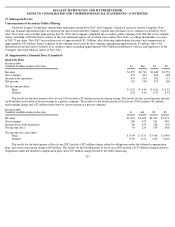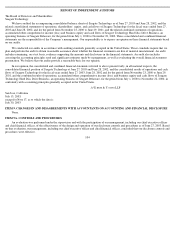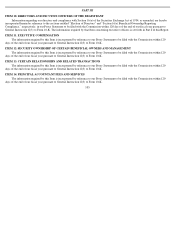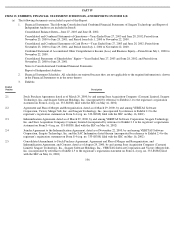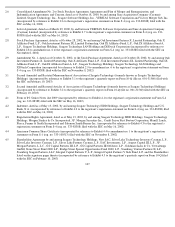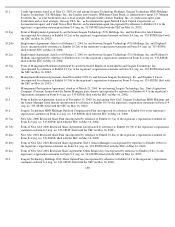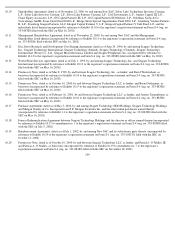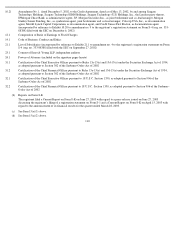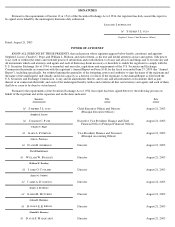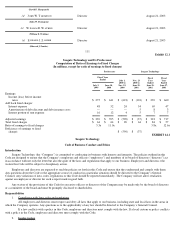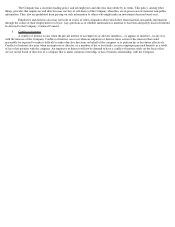Seagate 2002 Annual Report Download - page 120
Download and view the complete annual report
Please find page 120 of the 2002 Seagate annual report below. You can navigate through the pages in the report by either clicking on the pages listed below, or by using the keyword search tool below to find specific information within the annual report.
The Company has a securities trading policy and all employees and directors must abide by its terms. This policy, among other
things, provides that employees and directors may not buy or sell shares of the Company when they are in possession of material, non-public
information. They also are prohibited from passing on such information to others who might make an investment decision based on it.
Employees and directors also may not trade in stocks of other companies about which they learn material, non-public information
through the course of their employment or service. Any questions as to whether information is material or has been adequately disclosed should
be directed to the Company’s General Counsel.
3.
Conflicts of interest
A conflict of interest occurs when the private interest of an employee or director interferes – or appears to interfere – in any way
with the interests of the Company. Conflicts of interest can occur when an employee or director takes action or has interests that could
reasonably be expected to make it difficult to make objective decisions on behalf of the company or to perform his or her duties effectively.
Conflicts of interest also arise when an employee or director, or a member of his or her family, receives improper personal benefits as a result
of his or her position with the company. An employee or director will not be deemed to have a conflict of interest solely on the basis of his
service on the board of directors of a company that is under common ownership, or has a business relationship, with the Company.


